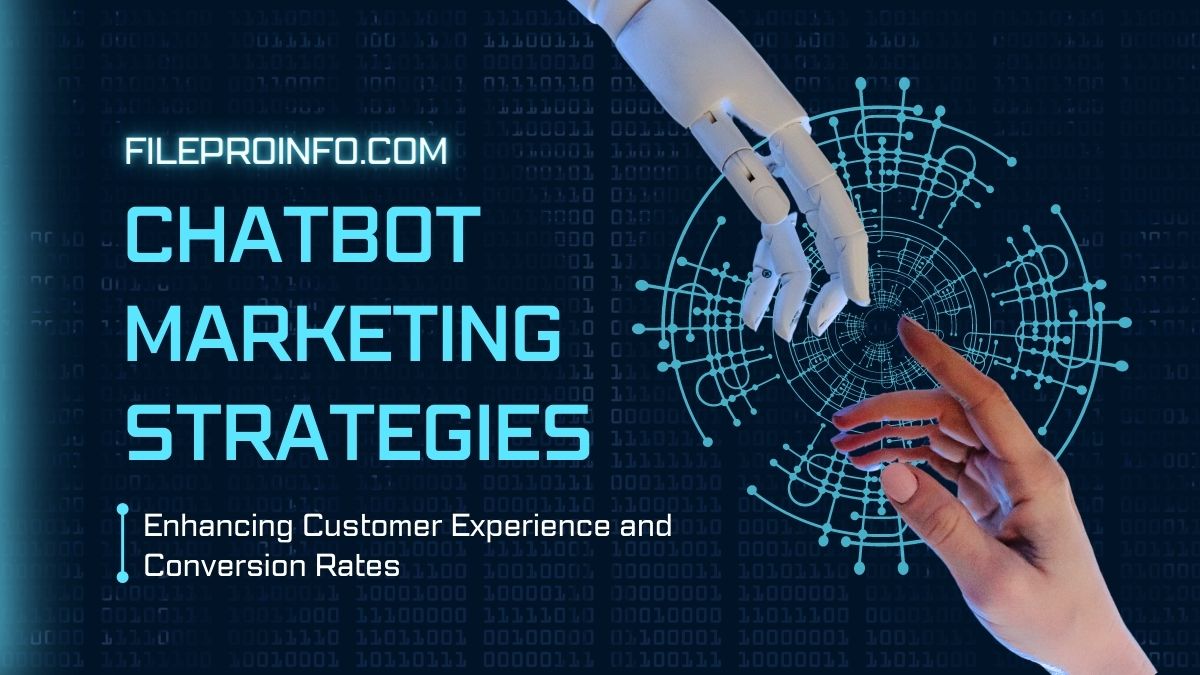
In today’s fast-paced digital world, businesses are constantly seeking innovative ways to engage customers, improve customer experience and conversion rates. Chatbots have emerged as a valuable marketing tool, offering personalized, real-time conversations that enhance customer experience and drive conversions. In this article, we will explore effective chatbot marketing strategies that can help businesses enhance customer experience and boost conversion rates.
1. Understanding the Role of Chatbots in Marketing:
Chatbots have revolutionized the way businesses engage with their customers. What started as simple automated messaging tools has evolved into sophisticated conversational agents capable of understanding and responding to human-like conversations. In the world of marketing, chatbots have quickly become a valuable asset for brands looking to enhance customer experience, generate leads, and increase conversions.
One of the key advantages of using chatbots in marketing is their ability to provide instant responses and round-the-clock availability. Unlike human agents who may have limited working hours, chatbots can handle customer queries anytime and anywhere. This ensures that potential customers never have to wait for answers or assistance, resulting in improved customer satisfaction and increased trust in the brand.
Moreover, chatbots also play a crucial role in lead generation by collecting user information and guiding them through the sales funnel.
2. Personalizing Customer Interactions:
Personalizing customer interactions has become one of the key advantages of chatbots. With their advanced capabilities, chatbots have revolutionized the way businesses engage with customers. By collecting and analyzing data from previous interactions, chatbots can deliver highly personalized experiences to users, creating a sense of individual attention.
One of the main benefits of using chatbots for personalization is their ability to remember user preferences and provide tailored recommendations. For instance, if a customer frequently orders a specific product or asks for certain information, the chatbot can learn from these interactions and offer relevant suggestions in future conversations. This level of personalization not only enhances the customer experience but also increases the likelihood of conversions and repeat business.
2. Streamlining Sales and Lead Generation:
In today’s fast-paced digital world, businesses are constantly looking for ways to streamline their sales process and generate more leads. One effective solution that has emerged in recent years is the use of chatbots. These AI-powered virtual assistants can play a significant role in streamlining the sales process and boosting lead generation.
Chatbots can be integrated into various marketing channels, such as websites, social media platforms, and messaging apps. They provide instant responses to customer inquiries and offer personalized recommendations based on the user’s preferences. This real-time interaction not only improves customer satisfaction but also captures valuable data about potential leads.
Moreover, chatbots can automate routine tasks like answering frequently asked questions or scheduling appointments, freeing up time for sales teams to focus on high-value activities. With advanced machine learning algorithms, chatbots continuously learn from interactions with customers, enabling them to improve their responses over time.
3. Providing Instant Customer Support:
Providing instant customer support has become a crucial aspect of businesses in today’s fast-paced world. Customers no longer have the patience to wait for hours or even days for a response to their queries. They expect prompt and efficient support and companies that fail to deliver on this front risk losing valuable customers. This is where chatbots come into play, offering an innovative solution for delivering instant customer support.
Chatbots are computer programs designed to interact with humans through text or voice-based conversations. They are programmed with artificial intelligence algorithms that allow them to understand and respond to customer queries in real time. With their ability to provide instant responses 24/7, chatbots ensure that customers receive immediate assistance whenever they need it.
Implementing a chatbot marketing strategy can significantly enhance a company’s customer support system.
4. Utilizing Chatbots Across Channels:
One effective strategy that is gaining popularity is the use of chatbots across various channels. By deploying chatbots on multiple platforms such as websites, social media, and messaging apps, businesses can seamlessly maximize their reach and impact.
Integrating chatbots into a comprehensive marketing strategy can provide numerous advantages. Firstly, it allows businesses to be present where their customers are most active. With the rising popularity of messaging apps and social media platforms, customers are spending more time on these channels than ever before. By utilizing chatbots across these platforms, businesses can meet their customer’s needs in real-time and provide instant support or information.
Additionally, deploying chatbots across channels enables businesses to deliver consistent messaging and branding.
5. Continuous Improvement and Analytics:
Continuous Improvement and Analytics: To ensure optimal performance, chatbots require continuous improvement and analysis. Businesses should monitor their chatbot’s performance regularly and use analytics to identify areas for improvement. By leveraging data-driven insights, companies can enhance the effectiveness of their chatbot marketing strategy.
Firstly, monitoring a chatbot’s performance is crucial to understand how well it is meeting customer needs. By analyzing metrics such as response time, conversation length, and customer satisfaction ratings, businesses can identify bottlenecks or areas where the chatbot may be falling short. For instance, if customers frequently abandon conversations due to long response times, it may indicate that the chatbot needs optimization in terms of speed or resource allocation.
Additionally, using analytics is essential for identifying patterns and trends in user behavior. By analyzing user interactions with the chatbot, companies can gain valuable insights into customer preferences and pain points.
Conclusion:
Chatbot marketing strategies have the potential to revolutionize customer experience and drive higher conversion rates. By personalizing interactions, streamlining sales processes, providing instant support, and deploying chatbots across multiple channels, businesses can create engaging experiences that resonate with customers. Continuous improvement through analytics and leveraging AI and ML technologies ensures that chatbots adapt and evolve to meet changing customer needs. By embracing chatbot marketing strategies, businesses can enhance customer experience, foster meaningful connections, and achieve higher conversion rates in the digital landscape.




